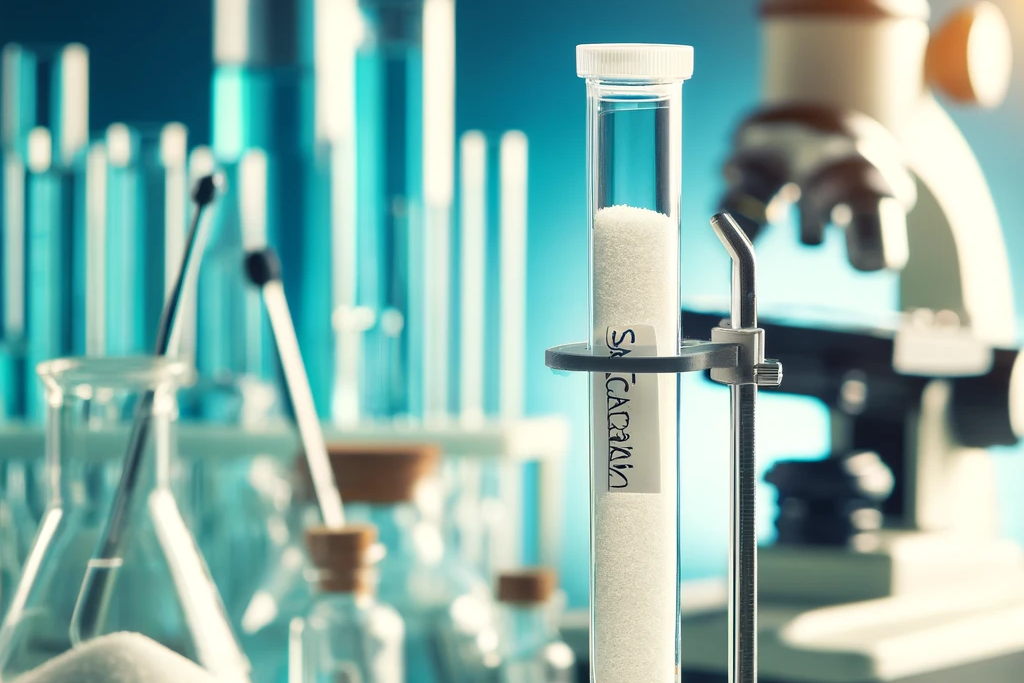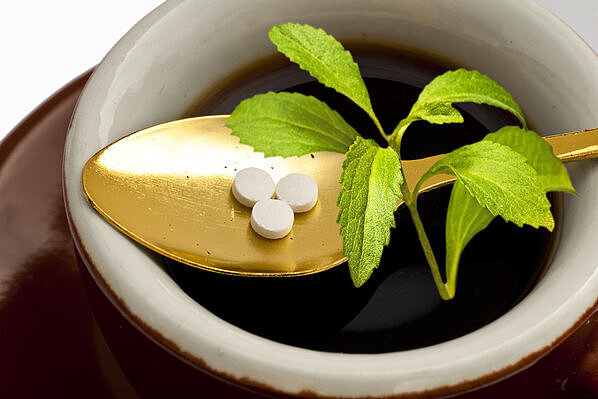Cyclamate

Cyclamate is an artificial sweetener that is used in many foods and drinks to improve the taste or reduce the calorie content. But is cyclamate also suitable for dogs? In this article, you will find out what cyclamate is, how it works and what its advantages and disadvantages are.
What is cyclamate?
Cyclamate is a chemical compound made from cyclohexylamine and sulphuric acid. It was discovered in 1937 by a student who accidentally licked his fingers after experimenting with the substance. He noticed that it tasted very sweet.
Cyclamate has about 30 to 50 times more sweetening power than sugar, but no calories. It is often mixed with other sweeteners such as saccharin or aspartame to achieve a better taste. Cyclamate is mainly used in drinks such as soft drinks, iced teas and energy drinks, but also in confectionery, baked goods, jams and chewing gum.
How does cyclamate work?
Cyclamate is not absorbed or metabolized by the body. It is excreted unchanged in the urine. It therefore has no effect on blood sugar levels or insulin secretion. This also means that it is suitable for diabetics.
However, cyclamate also has some disadvantages. For one thing, it can cause allergic reactions or digestive problems in some people. Secondly, it is suspected of being carcinogenic. Some studies have found a link between cyclamate and bladder cancer in rats. For this reason, cyclamate is banned or severely restricted in some countries such as the USA and Canada.
Is cyclamate suitable for dogs?
Cyclamate is not suitable for dogs. There are no studies that have investigated the safety or effects of cyclamate in dogs. However, there are other artificial sweeteners that are very dangerous for dogs. These include xylitol, which is found in many sugar-free products.
Xylitol can lead to a strong release of insulin in dogs, resulting in life-threatening hypoglycaemia. Xylitol can also lead to liver failure or blood clotting disorders. Even small amounts of xylitol can be fatal for dogs.
As many products can contain both cyclamate and xylitol, you should not give your dog any food or drink that contains artificial sweeteners. Even if you consume such products yourself, you should make sure that your dog does not snack on or swallow any of them.
Cyclamate is an artificial sweetener that is used in many foods and drinks. It has no calories and has no effect on blood sugar levels. However, it can lead to allergic reactions or digestive problems and is suspected of being carcinogenic.
Cyclamate is not suitable for dogs. There are no studies on the safety or effects of cyclamate in dogs. In addition, products containing cyclamate may also contain other dangerous sweeteners such as xylitol. Therefore, you should not give your dog food or drinks with artificial sweeteners.
If you want to give your dog something sweet, opt for natural alternatives such as fruit or honey. But you shouldn't overdo it here either, because too much sugar is also harmful for dogs.
If you notice any signs of hypersensitivity or poisoning in your dog, you should see your vet immediately. We are not a substitute for a vet, but we try to be as accurate as possible. Every dog reacts differently and we recommend you get a second opinion or consult your vet if in doubt.
Stay healthy and take good care of your four-legged friend!😊
Similar to Cyclamate
Aspartame is a chemical compound made from the two amino acids phenylalanine and aspartic acid. It was discovered by chance in 1965 and has been approved as a food additive since 1981. Aspartame has...
Saccharin is an organic compound derived from benzene. It was discovered by accident in 1879 when a chemist noticed that his fingers tasted sweet after experimenting with a substance. Saccharin is...
Stevia is an extract from the leaves of the Stevia rebaudiana plant, which is native to South America. The leaves contain steviol glycosides, which are up to 300 times sweeter than sugar but have no...
Sucralose is a sweetener that is produced by chemically modifying sucrose (sugar). Three hydroxyl groups (OH) are replaced by chlorine atoms (Cl). This changes the structure of the sugar in such a...



